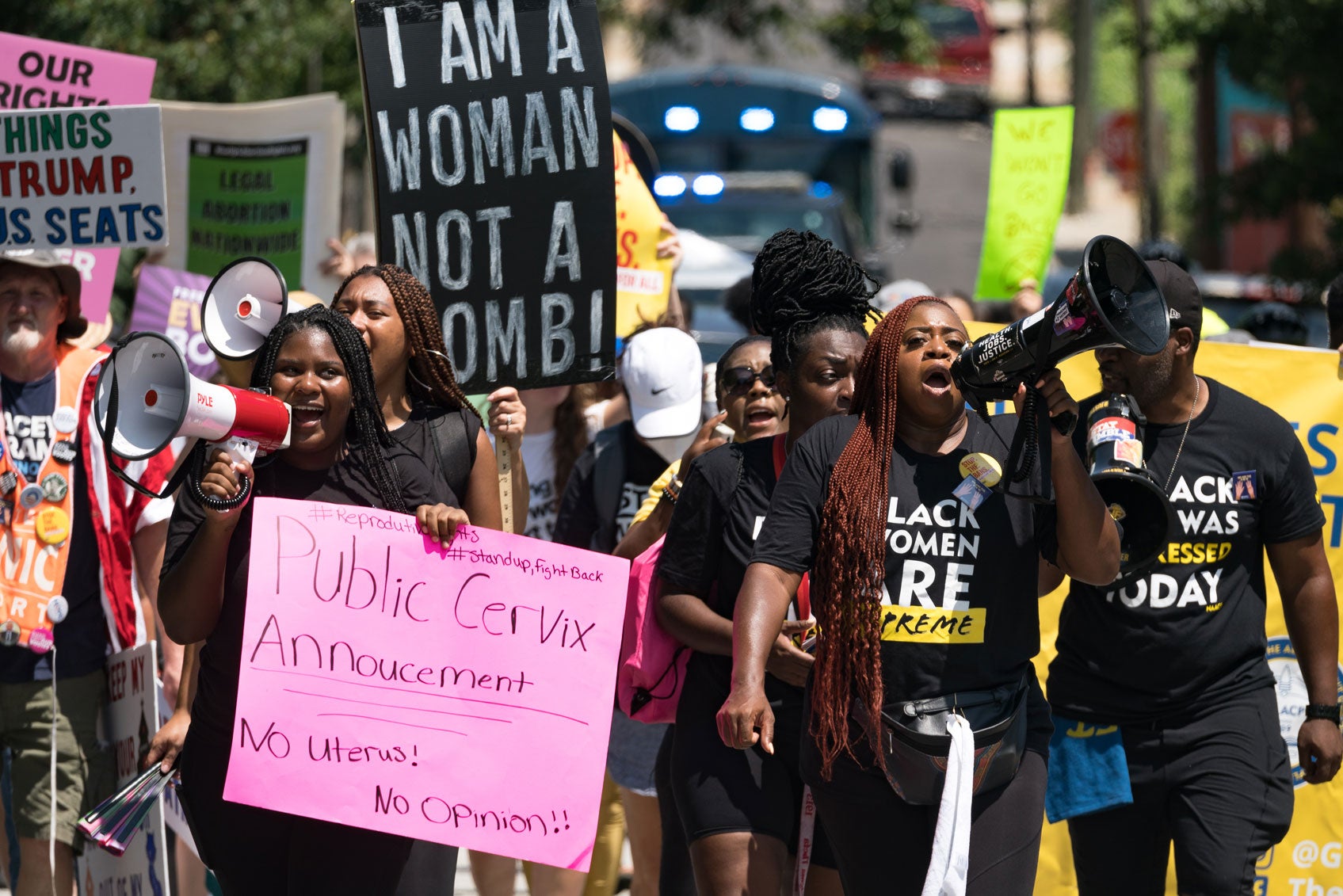The Supreme Court Cost Amber Thurman Her Life
Amber’s story needs to be a clarion call to physicians to act on behalf of patients. Photo illustration by Slate. Photo by Megan Varner/Getty Images.
This week, ProPublica reported on the story of Amber Thurman, a young mother from Georgia, whose death after being denied abortion care is heartbreaking and enraging and was completely preventable. As an emergency physician and a human rights attorney working to create access to quality reproductive health care, we know that this unnecessary tragedy is a direct result of banning abortion.

According to ProPublica’s in-depth coverage, in 2022 Thurman arrived at a Georgia emergency department seeking medical care shortly after the Supreme Court overturned Roe v. Wade and ended the constitutional right to an abortion. She was experiencing a rare but life-threatening miscarriage complication—retained products of conception. This complication can occur after any pregnancy loss. Because Georgia’s abortion ban had gone into effect after the Dobbs ruling, Thurman, a single mother of a 6-year-old son, had traveled to North Carolina, where she received medication to legally terminate her pregnancy. After complications arose, she was unable to travel the distance back to the North Carolina clinic, so she sought care in her home state.
On presentation to the emergency department, according to the time line in the article, she exhibited low blood pressure, a tender abdomen, and foul-smelling discharge during a pelvic exam—all evidence of abdominal infection. Doctors started her on fluids and antibiotics and called for an OB-GYN consult. They “noted the possibility” of a dilation and curettage, the procedure that would remove the source of her infection and is standard best medical practice to reverse the potentially fatal infection that was ravaging her body.
Although the medical care Thurman needed is not new or controversial, timely delivery is critical to success. In emergency medicine, as soon as we identify a solvable problem, we must initiate that solution. An OB-GYN was called early in her care, but it took nearly a day for Thurman to get to the operating room for intervention. By that point, it was too late. Now, two years later, the state of Georgia review board on maternal mortality has ruled her death preventable.
Georgia HB 481, the anti-abortion law that was initially passed in 2019 and enacted in 2022, became enforceable once SCOTUS overturned Roe v. Wade and eviscerated federal protection for abortion rights. This law bans all abortions after six weeks and includes an exception “that any such act shall not be considered an abortion if the act is performed with the purpose of … Removing a dead unborn child caused by spontaneous abortion.” That exception was apparently not enough for doctors to save Amber Thurman’s life.
The question about Georgia’s ban becomes: When and how is it legal to intervene to save a woman’s life if her abortion was induced versus her having a “spontaneous abortion”? Was this distinction what contributed to Thurman’s preventable death? According to ProPublica, Thurman obtained medication abortion legally in a neighboring state and returned to her home state of Georgia to be with her family and complete her miscarriage.
Lifesaving medical treatment for a patient who has had a miscarriage is the same regardless of what initiated it. In the Georgia abortion ban, the insertion of the medically unnecessary word spontaneous may be confusing physicians and delaying care that would otherwise be protected under the “life of the mother” exceptions that exist in every U.S. state.
The lethal implications of patients’ lack of access to abortion follow-up care are real. This relates not only to elective terminations but also to terminations for fetal anomalies or a new cancer diagnosis.
Thurman’s story needs to be a clarion call to physicians to act on behalf of our patients, no matter where they live. We must pledge that we will not restrict lifesaving care for specific patients that we would provide to others. It is crucial that lawyers and hospital administrators, meanwhile, support clinicians in offering necessary medical care and refusing to work in an atmosphere where they fear for their job and even liberty.
When care providers operate under confusing or vague laws, it is ultimately patients who are the most harmed. Legislators and courts have repeatedly ruled that it is on doctors, as experts, to deliver the care patients need. It’s time for them to support us in doing that. It is too late for Thurman’s family, but there are many more patients who seek emergency care, whose very lives will depend on it.













































